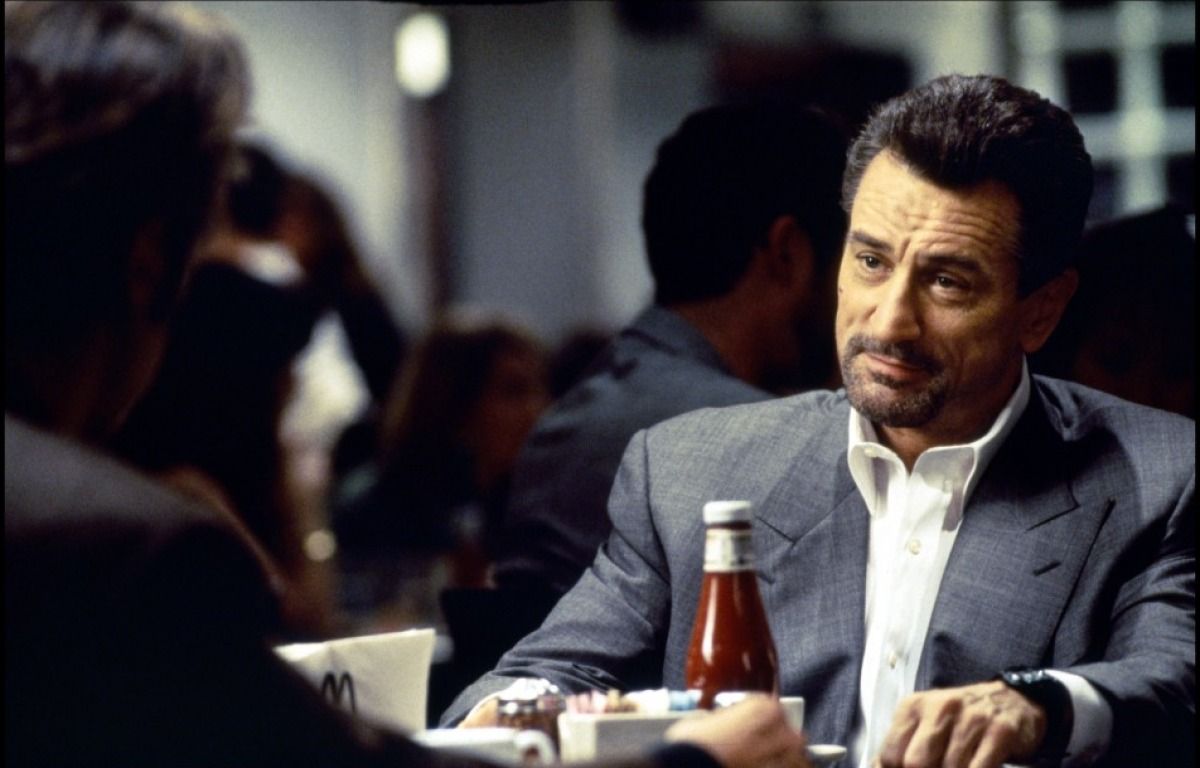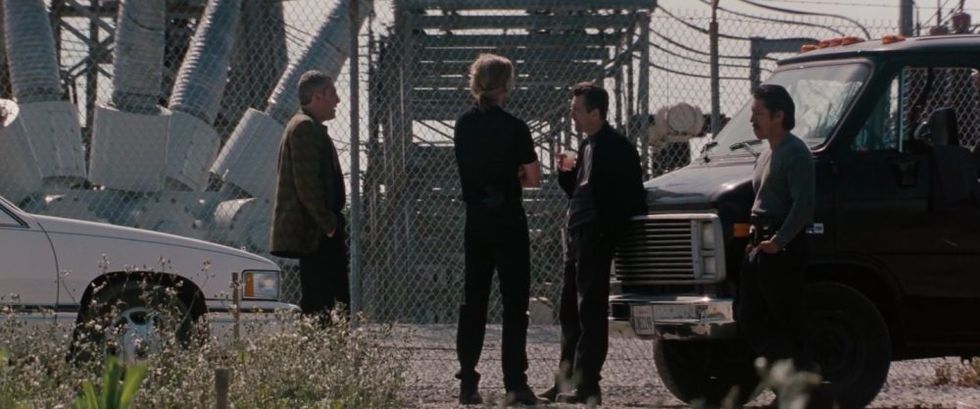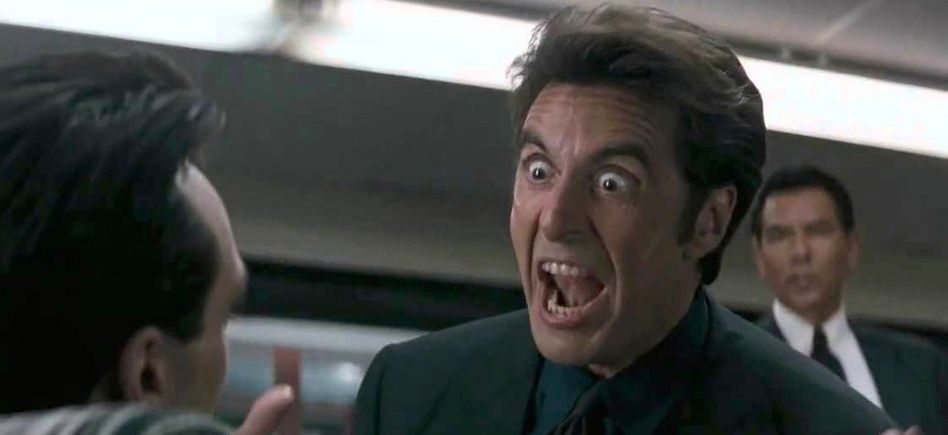The history of the Oscars is peppered with examples of the ‘wrong’ film receiving the ‘Best Picture’ award; Raging Bull getting beaten by Ordinary People in 1981, and Pulp Fiction being pipped by Forrest Gump in 1995 certainly take some beating on that front.
But at least they got nominated. What of the films that didn’t even make the shortlist in a single category, big or small? King Kong, Paths of Glory, The Shining; there are plenty with solid grounds for grievance.
In modern Oscars history though, it’s particularly hard to fathom why Heat got precisely zero attention from the fabled Academy at the 68th Oscars 25 years ago.
We first have to own up to a mild obsession with Michael Mann’s soaring crime saga, but we certainly aren’t the only ones to bestow it with modern classic status; books have been written, websites have been built and even a podcast has been recorded where each episode examines a single minute of the film.
Even those less enamoured by its charms, might have to admit scratching their head as to why Babe, a film about a pig that thinks it’s a sheepdog, got on the Best Picture list in its place. It was Mel Gibson’s Braveheart that won, another from the list that year which feels very of its time.
On paper, Heat looked a shoe in to be in the mix. De Niro and Pacino together on screen for the first time and putting in two Hall of Fame performances to boot; in De Niro’s case an understated turn that might just be a career best.
The wider ensemble cast doesn’t put a foot wrong either; Val Kilmer, Ashley Judd, Jon Voight. Big hitters everywhere.
And yet it would be Tim Roth in Rob Roy (Best Supporting Actor nominee) and Richard Dreyfuss for Mr Holland’s Opus (Best Actor nominee) among those getting their dinner jackets dry-cleaned for the ceremony.
Did Pacino and De Niro somehow cancel each other out, confusing voters into overlooking them completely? Or was their long-awaited co-star billing seen as too flashy or gimmicky?
Go behind the camera though and the case for Heat only gets stronger. Michael Mann was the Christopher Nolan of his time; with the highly-regarded Manhunter and Last of The Mohicans on his showreel, he was firmly entering the big league as a large-scale director with an auteurish dedication and distinctive visual style.
With six months of pre-production, Mann and cinematographer Dante Spinotti put on a masterclass of technical filmmaking. A variety of lenses, filters, cameras and unusual angles combine to set a different tone for every scene. It’s beautiful too; almost every frame of Heat’s opening sequence could be hung as a photograph.
One of the great LA movies, it uses nearly 100 locations around the city, many of which had never been seen on film before. For an industry based in LA, this alone should have played straight into The Academy’s hands.
Editing too was a herculean task - four editors are credited for bringing a sprawling film, that at times feels more like a Robert Altman epic, so multiple are the sub-plots and supporting players.
And the greatest head-shaker of them all; how did it get overlooked for Best Sound, Sounds Effects and Score? True, these aren’t categories that frequently stir the passions, but really.
The minimalist score is one of the great low-key soundtracks and lifts the film throughout.
Anyone who’s seen the bank heist scene in their living room will have been moved, perhaps literally, by the echoing gunshots that were painstakingly recorded live on set as they echoed around downtown LA.
Imagine hearing it in the cinema. Those who did talk about like they saw The Beatles in The Cavern club.
The influence of this film is long too; it’s very clearly seen in everything from Nolan’s The Dark Knight right up to the synthy soundtracks and urban neo-noir of the Safdie brothers.
So why didn’t it get a look in?
It’s interesting to note that newspaper coverage back in 1996 seemed to make no mention of Heat’s omission being a surprise. In a year known for its surprises in fact, Heat wasn’t really one of them.
The New York Times made more play of Oliver Stone (Nixon), Ron Howard (Apollo 13), Martin Scorsese (Casino) and Ang Lee (Sense and Sensibility) being overlooked for Best Director.
In fact every Best Director nominee was a first-timer, which somehow makes Mann’s omission even harder to understand.
Get Shorty (no nominations) and Casino (one for Sharon Stone) seemed to get more attention for being overlooked.
All but one of the Best Picture nominees were released early in the year which is almost unheard of. In a typical year, contenders tend to be held until around new year when votes are cast.
Heat was one of these, released at Christmas, and backed up by an ad campaign from Warner Bros, who clearly had hopes that Heat might continue its run of recent success that had included Dangerous Liaisons, Driving Miss Daisy, Goodfellas, JFK, Unforgiven and The Fugitive.
Perhaps, Heat was seen as too much of a genre film, a simple cops and robbers flick, to get taken seriously. Although the fact that The Departed, a good but inferior crime movie (and a remake), picked up a ton in 2007 would show it can be done.
In truth, Heat just wasn’t appreciated at the time; by critics and filmgoers too. Decent box office takings and mildly impressed reviews were the order of the day.
While the winners from 1996 are largely forgotten, Heat found its wider audience on TV and as one of the first great DVD releases. Its stock amongst film fans and filmmakers has continued to rise.
Its Oscar snub is only proof that form is temporary and class is permanent.
Like this article? Sign up to our newsletter to get more articles like this delivered straight to your inbox
Need some positivity right now? Subscribe to Esquire now for a hit of style, fitness, culture and advice from the experts















